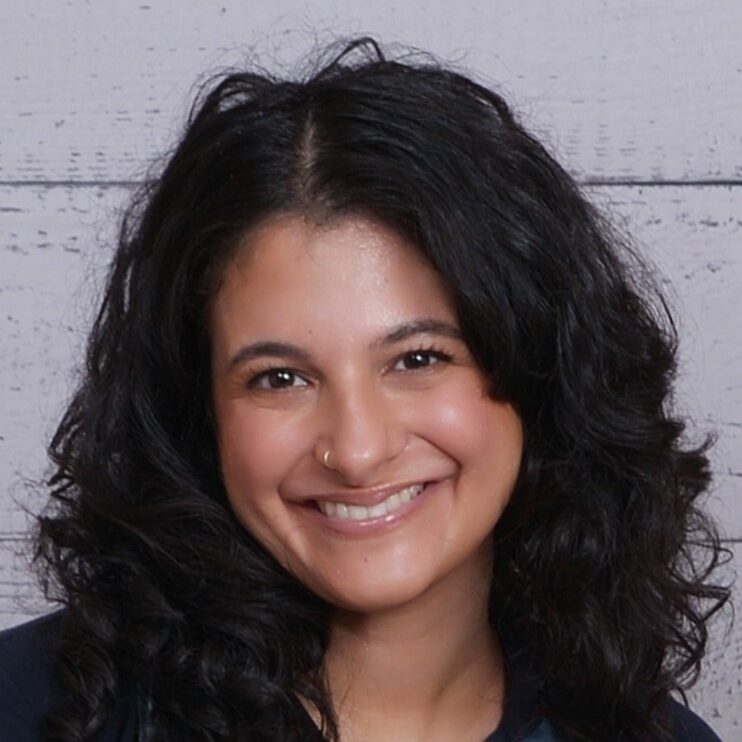Get to know LAFLA’s nationally recognized Medical Legal Partnerships (MLPs) in this Q&A with Managing Attorney Sheyda Joolharzadeh. Sheyda began her legal career at LAFLA in 2015 as a fellow before coming on as a staff attorney with the Eviction Defense Center. She joined the MLP team in 2019, overseeing Los Angeles County’s first Medical Legal Community Partnership site at the Martin Luther King Jr. Outpatient Center.
Thanks for speaking with us today, Sheyda! Let’s start with your background: What led you to law, and to LAFLA?
I wasn’t one of those people who knew I wanted to be a lawyer since I was a kid. After college, I knew I wanted to pursue social justice and public interest work, and I noticed that a lot of the people whose work I admired had law degrees. So, that’s how I ended up going to law school.
At first, I was interested in international law, but I wanted a more direct impact. LAFLA was hiring an Equal Justice Works fellow to support tenant associations in U.S. Department of Housing and Urban Development (HUD)-subsidized properties, and I thought that was interesting and unique. I started in May 2015, so my 9-year anniversary is coming up!
After my two-year fellowship, I transitioned to the Eviction Defense Center (EDC) and stayed there for three years. In fall 2019, I joined the Medical-Legal Partnerships (MLP) team. And two months ago, I became the Managing Attorney!
Congratulations! So, what is a medical-legal partnership, and what does the MLP team do?
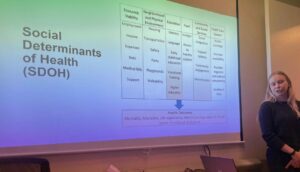 The idea of a medical-legal partnership is that if we have legal clinics in medical facilities, working with healthcare providers, we can address the social determinants of health that have intense and long-lasting impacts on our clients.
The idea of a medical-legal partnership is that if we have legal clinics in medical facilities, working with healthcare providers, we can address the social determinants of health that have intense and long-lasting impacts on our clients.
The MLP team is really interdisciplinary. Each of our clinics is a one-stop shop where we provide services across LAFLA’s practice areas—family law, immigration, housing, benefits, and reentry.
Attorney Emma Gary gives a presentation on the social determinants of health
How does the MLP team work with healthcare providers at their sites?
It’s a very collaborative environment. All the clinics have great social work teams and community health workers who refer patients to us. It’s great because besides email referrals or calls, a social worker can even walk a client over to us for assistance. Plus, we can more easily get medical documentation from clients’ healthcare providers when needed than advocates who have no relationship to those providers.
We typically attend the clinic’s all staff meetings to get updates from their medical and social work teams and learn about health trends and needs. We also share updates on our successes and things that could impact clients, like rental relief or recent changes to Temporary Protected Status (TPS).
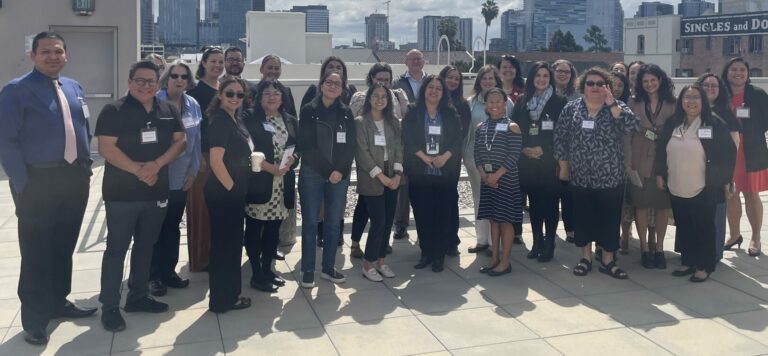
The sixth anniversary celebration of LAFLA’s partnership with the LA County Department of Health Services
What are LAFLA’s different MLPs?
Our biggest partnership is with Los Angeles County, and it covers three sites operated by the Department of Health Services: the Martin Luther King Outpatient Center, Rancho Los Amigos Rehabilitation Center, and Long Beach Coastal Health Clinics. This program just celebrated our sixth anniversary!
Our newest program is the Black Health Initiative at Planned Parenthood’s Inglewood Resource Center, which is the first MLP at a Planned Parenthood in the country, and one of the only legal resources in Inglewood. Our oldest partnership—since 2011—is with TCC Family Health in Long Beach. They have nine different clinics, and we can serve patients from any of them, which is amazing in terms of access. Lastly, we partner with Community Medical Wellness Centers (CMWC), which also has multiple locations and targeted Khmer services. This partnership is the first AAPI-focused MLP in Southern California.
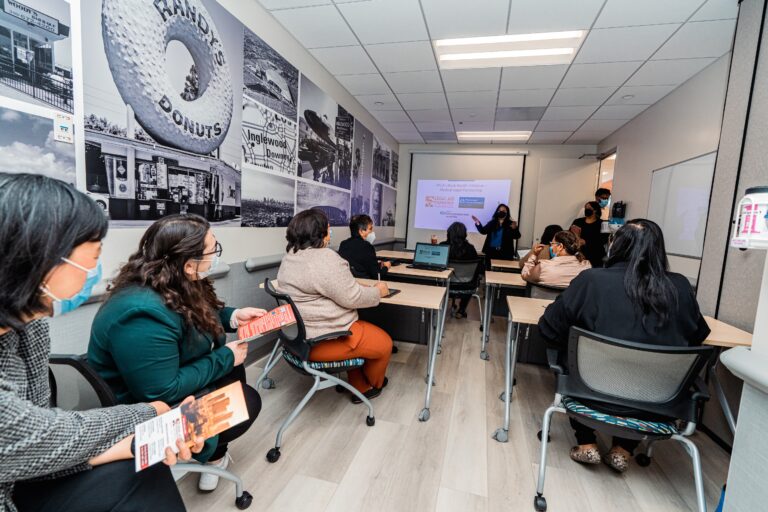
The launch of LAFLA’s partnership with Planned Parenthood LA on the Black Health Initiative (BHI)
How does the MLP team collaborate with other workgroups at LAFLA?
Here’s a recent example: A client came to a clinic seeking immigration assistance. Her husband was a legal permanent resident, and he was abusive. My team filed a Violence Against Women Act (VAWA) petition for her so she could receive CalWORKS benefits and full-scope Medi-Cal, and eventually helped her get legal permanent residency. But before she got her work permit and benefits, she was served with an eviction notice. So, the Eviction Defense Center defended her. And while all this was going on, her abusive ex filed a false Domestic Violence Restraining Order (DVRO) against her, and LAFLA’s Survivor & Family Justice Workgroup defended her in that proceeding.
This is common for our clients. On average, our clients present with three to four different legal issues, and we can refer them to different workgroups in LAFLA as needed.
What else should people know about MLP?
We have an open attorney position, where you can be mentored by me and my team! Come join us! It’s a really interesting job where you can respond to what’s happening in the community and find unique and creative ways to address those issues.
Lastly, what do you love about working at LAFLA?
I really enjoy interacting with clients; I admire their resilience. It’s a privilege to be so embedded in the community and feel that trust from the community—to know that people look to LAFLA for help and guidance.
LAFLA is a great environment where the people I work with on a daily basis really believe in the mission. I feel very fortunate to be surrounded by likeminded people who share the goal of making positive change. I’ve been able to develop a lot under amazing attorneys and collaborate with many different people across workgroups.
Another thing I appreciate is the ability to develop in my areas of interest. LAFLA has allowed me to grow as an advocate and explore different ways to support my community. Even in my early days, I was given the leeway to identify problems in the profession and work to solve them.
What’s nice about this job is that it’s ever evolving. You’re always on your toes, so it’s never boring.
